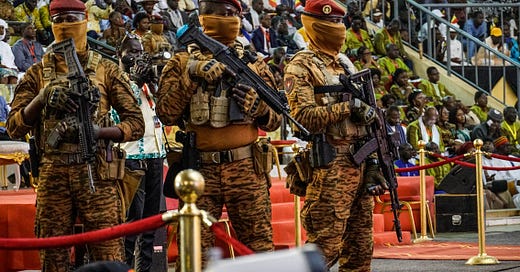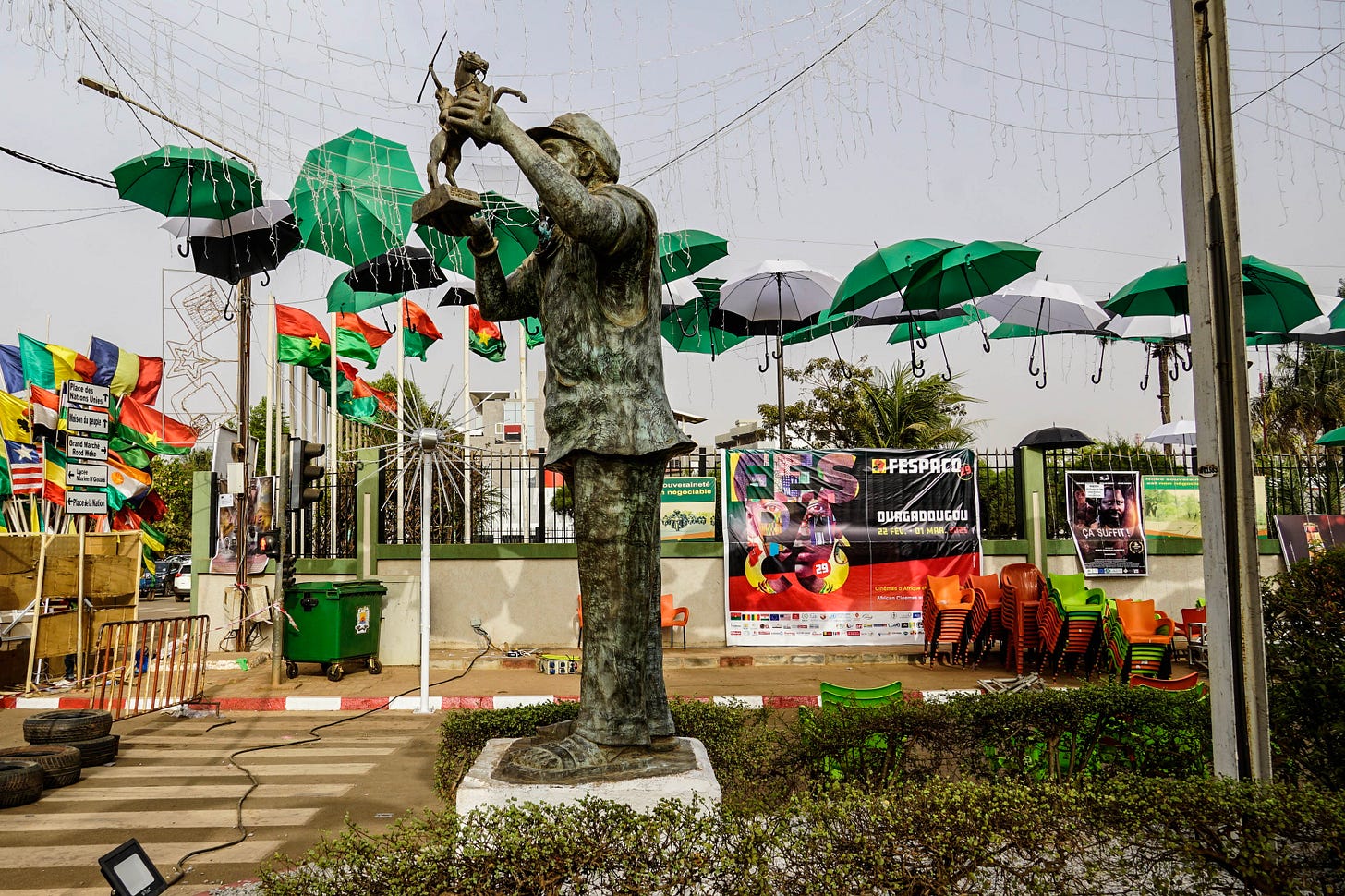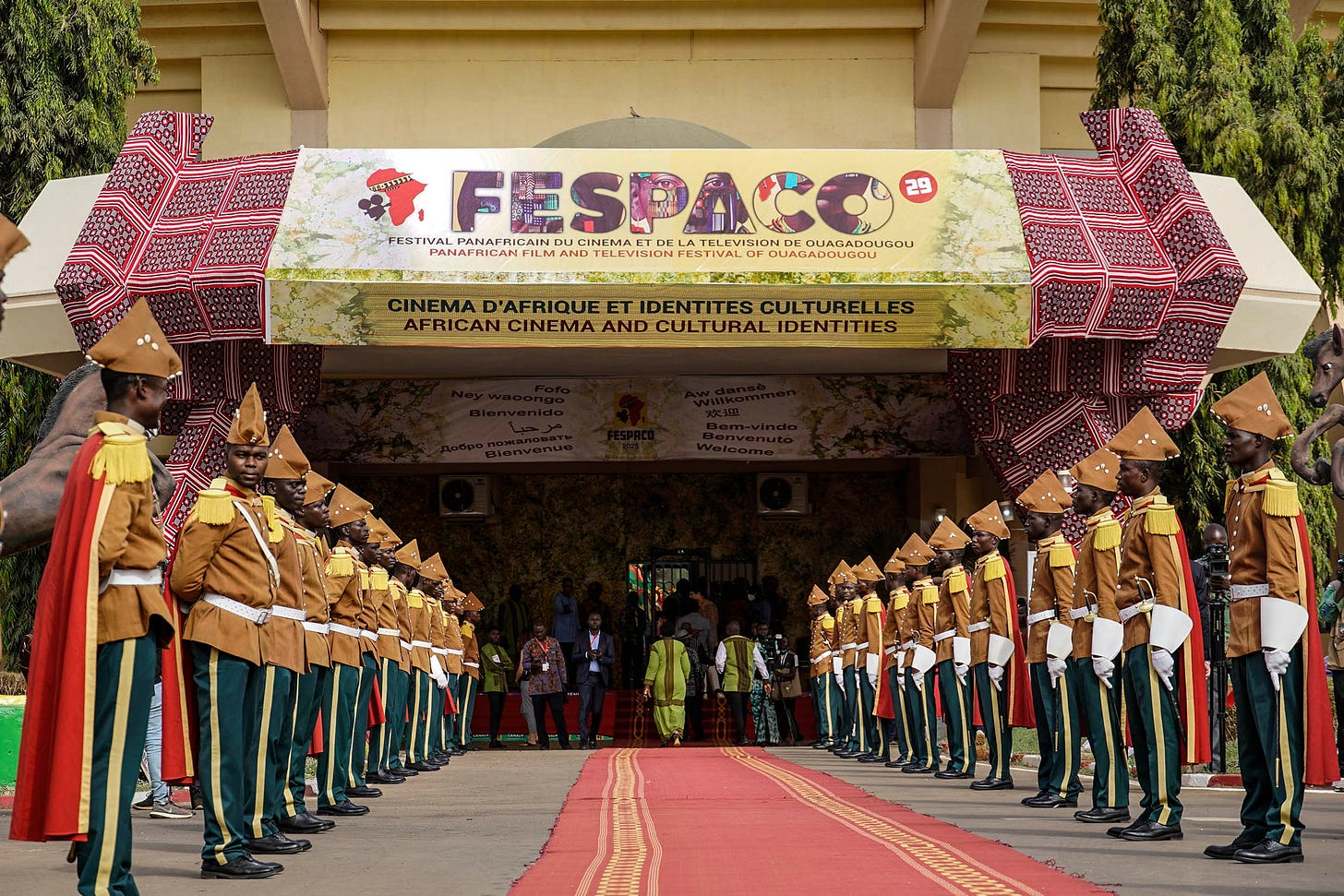Lights, camera and a little too much action
What happens when politics and cinema mix at one of Africa’s biggest film festivals?
Èlia Borràs in Ouagadougou
The 29th edition of the Pan-African Film and Television Festival of Ouagadougou (Fespaco) took place earlier this month, exhibiting films and documentaries from various countries.
Just as Sira by Apolline Traoré was a standout at the last edition in 2023, this year Dani Kouyaté’s Katanga, la danse des scorpions filled theatres. The Macbeth adaptation (in Mooré, one of Burkina Faso’s official languages) explores themes of power, the occult and ancestral rituals.
The Burkinabé filmmaker spent five years adapting the drama and won the Yennenga Gold Stallion (worth 20-million CFA francs), the most prestigious award of the festival. The last time this award stayed in Burkina Faso was in 1997, with Buud Yam by Gaston Kaboré. “I wanted to make a black-and-white film to give it a universal feel, a dreamlike quality, and turn it into a fable about power,” Kouyaté said.
The film was shot near the capital, Ouagadougou, although Kouyaté initially intended to travel across the country. “Filming began two and a half years ago, but due to security concerns, we had to reduce the number of locations.”
Carefully avoiding a journalist’s question about the recent coups in the Sahel, he said, without elaborating: “Power is a human and universal theme … Plots against power exist everywhere.”
The Silver Stallion prize went to The Village Next To Paradise by Somali director Mo Harawé, while the Bronze Stallion was awarded to On Becoming a Guinea Fowl by Zambian filmmaker Rungano Nyoni.
Throughout the week Cine Burkina and Neerwaya, two of the city’s most iconic cinemas, were packed with audiences. This year, however, Burkina Faso’s capital was more militarised than usual, especially in areas where authorities were present.
Chad’s President Mahamat Idriss Déby attended the opening ceremony alongside Burkina Faso’s leader, Ibrahim Traoré. The event, co-ordinated by playwright and stage director Aristide Tarnagda, took place at the Palais des Sports De Ouaga 2000. Inside the venue, Chadian and Burkinabé presidential guards stood ready to protect both leaders – a staged display of military control that compromised the artistic performance.
After the two presidents gave the opening clap, the festival was officially launched with the theme “I Am Africa”. This year, a total of 1,351 films were submitted, with 235 from 48 countries accepted and 81 competing for different awards, including the Audience Award and the Thomas Sankara Prize.
“I wanted every African to feel represented at some point in the show,” Tarnagda told The Continent.
Figures such as Patrice Lumumba, Muhammad Ali, Ousmane Sembène, and Thomas Sankara were projected onto a massive 20-metre screen. Also featured was Malian filmmaker Souleymane Cissé, a major absence from the festival, who had been set to preside over the non-fiction jury but passed away two days before the festival began.
Chad was this edition’s guest of honour, with a much larger stand than the others. “This is where an idea can turn into a film,” said Chadian director Cyril Danina.
The space also featured EkeFlicks, a new African streaming platform reminiscent of Netflix, and a stand for the Alliance of Sahel States, displaying a 2m poster of the three junta leaders who lead the bloc. This was Chad’s first time as the guest of honour.
Benin was originally selected in 2023, but Mali took its place at the last minute. Déby, who expelled French military forces in January – following the path of his Sahelian neighbors – took advantage of Fespaco to hold bilateral meetings with Ibrahim Traoré.
“I define Chadian identity in a way that makes it universal,” said Danina.
Throughout the event, Fespaco was adorned with giant balloons featuring images of President Ibrahim Traoré. There was also a stand collecting donations for the “war effort”.
Burkina Faso, the host of Africa’s most important film festival, is also the country most affected by jihadist terrorism, accounting for 43% of global attacks, according to the 2024 Global Terrorism Index published by the Institute for Economics and Peace.
Kouyaté, who also won the Audience Award, dedicated his prize “to the brave people of Burkina Faso and to all those who have died on the battlefield defending our homeland”.







Love the title!